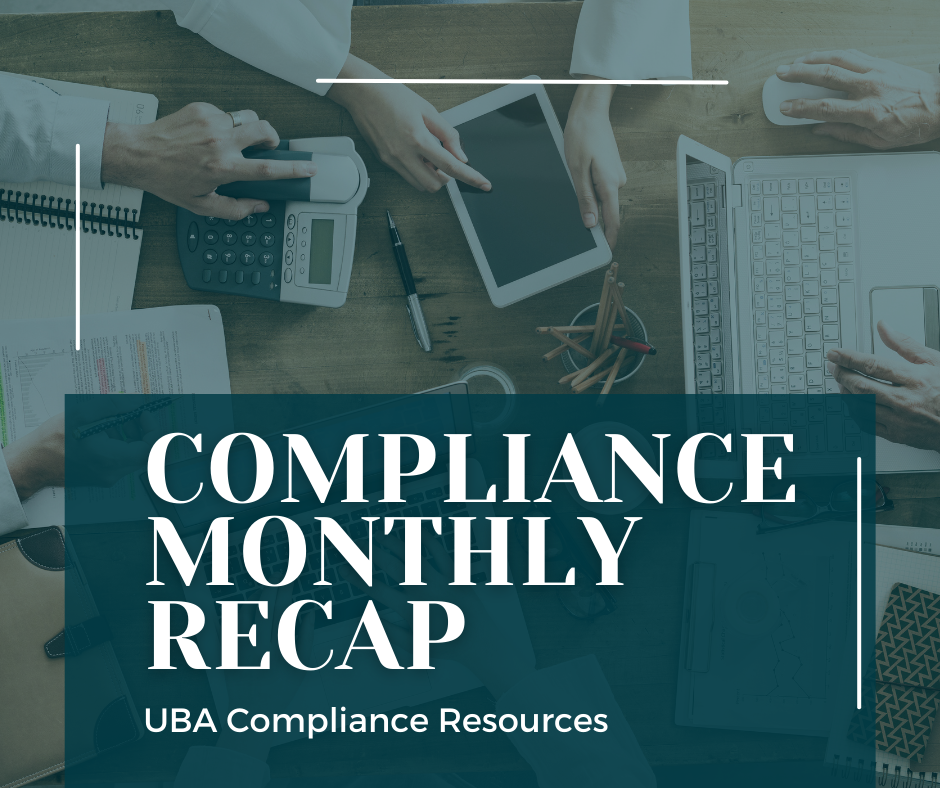Blog

IRS Increases PCORI Fee Rate
The Internal Revenue Service (IRS) has issued Notice 2025-61, announcing a significant increase to the Patient-Centered Outcomes Research Institute (PCORI) fee amount. Employers with self-insured health plans and health insurance issuers must take note of the new rate and upcoming compliance deadlines. What is the New PCORI Fee Amount? The PCORI fee is increasing to…

Compliance Recap | November 2025
THE ANNUAL GAG CLAUSE ATTESTATION DUE DEC. 31, 2025 Under the rules adopted by Congress in the Consolidated Appropriations Act, 2021 (CAA), group health plans and health insurance issuers of both fully insured and self-funded plans must certify that their contracts with providers, networks, third-party administrators (TPAs), pharmacy benefit managers (PBMs), or other service providers…

Compliance Alert: HIPAA Privacy Notice Update Due Feb. 16, 2026
The U.S. Department of Health and Human Services (HHS) has issued a final rule that requires covered entities—including many health plans—to update their Notice of Privacy Practices (Privacy Notice). This change enhances privacy protections for highly sensitive Substance Use Disorder (SUD) treatment records. Why the Update is Necessary The HIPAA Privacy Rule already mandates that…

Healthy Through The Holidays: Your Winter Wellness Guide
The transition into winter and the busy holiday season often brings two things: cold weather and packed calendars. While the shorter days and festive cheer are welcome, they also present unique challenges to our health, including managing stress, fighting off seasonal illnesses, and maintaining an active routine. Staying healthy this winter isn’t about grand gestures;…

Meeting the ERISA Deadline: Handling MLR Rebates
Employers with insured health plans may have received a Medical Loss Ratio (MLR) rebate from their health insurance carrier this year. Rebates were required for plans not meeting the 2024 MLR standards and had to be issued by September 30, 2025, either as premium credits or lump-sum payments. If any part of the rebate qualifies…

The Future of Benefits: Integrating Health for a Thriving Workforce
The future of healthcare is rapidly evolving, with a clear trend toward integrating health interventions directly into employee benefits packages. As employers face rising healthcare costs—projected to increase by over 8% in 2025—they are rethinking how to deliver value to their workforce while managing expenses. This integration is reshaping not just what benefits are offered, but…

Compliance Recap | October 2025
2026 PENALTIES FOR FAILURE TO FILE OR FURNISH ACA REPORTING FORMS The IRS has announced the 2026 penalties for failure by Applicable Large Employers (ALEs) to file or furnish Affordable Care Act (ACA) reporting Forms 1095-C and 1094-C for the 2025 tax year. Amounts can increase significantly depending on how late the filing is or…

The Power of Gratitude: A Guide to Well-Being
The phrase “attitude of gratitude” is more than a simple rhyme—it’s a powerful reminder to intentionally practice thankfulness in our daily lives. Consistently acknowledging what we appreciate not only enhances our own mental and physical health but also positively affects those around us. What Is Gratitude? Gratitude means being thankful and ready to show appreciation…

New Federal Guidance Expands Access to Fertility Benefits
Federal regulators—specifically, the Departments of Labor, Health and Human Services, and the Treasury—issued joint guidance on October 16, 2025, making it significantly easier for employers to offer fertility benefits outside of their traditional group health plans. This action was driven by an Executive Order focused on protecting in vitro fertilization (IVF) access and reducing the…

Compliance Risks in Open Enrollment: 5 Mistakes and How to Avoid Them
Open enrollment is a hectic and critical period for employers that often brings a risk of compliance errors. These mistakes can confuse employees and cause missed benefits, while also exposing employers to legal risks. This article highlights five common compliance pitfalls to avoid during open enrollment: Ineffective Communication of Benefit Changes – Benefit offerings often change…






